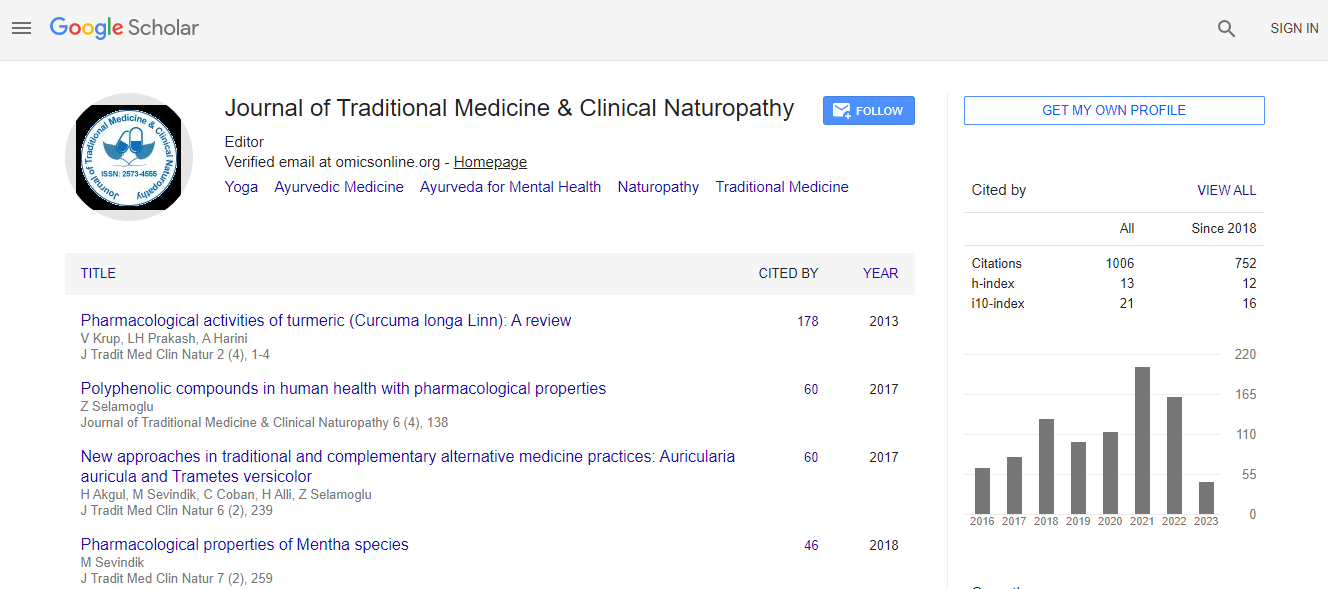Short Communication
Jerusalem Balsam Lowers Kynurenic Acid Formation: An In Vitro Study
Halina Barana1,3*, Marcelin Jan Pietryja2, Carina Kronsteinera1 and Berthold Kepplinger3
1Division of Neurophysiology, Institute of Physiology, Veterinary Medical University Vienna, Austria
2Herbarium St. Franciszka, Institute of Monastic Medicine, Monastery of Friars Minor Franciscans Katowice-Panewniki, Poland
3Karl Landsteiner Research Institute for Neurochemistry, Neuropharmacology, Neurorehabilitation and Pain Treatment, Austria
- *Corresponding Author:
- Halina Barana
Karl Landsteiner Research Institute for Neurochemistry
Neuropharmacology, Neurorehabilitation and Pain Treatment
Mauer bei Amstetten, 3362, Austria
Tel: 00436644436169
E-mail: halina.baran@neuro-lab.eu
Received date: May 16, 2017; Accepted date: June 05, 2017; Published date: June 14, 2017
Citation: Barana H, Pietryja MJ, Kronsteinera C, Kepplinger B (2017) Jerusalem Balsam Lowers Kynurenic Acid Formation: An In Vitro Study. J Tradit Med Clin Natur 6:224.
Copyright: © 2017 Barana H, et al. This is an open-access article distributed under the terms of the Creative Commons Attribution License, which permits unrestricted use, distribution, and reproduction in any medium, provided the original author and source are credited.
Abstract
The present study evaluates the action of Jerusalem Balsam with respect to the biosynthetic machinery of Kynurenic Acid (KYNA) synthesis e.g. the activity of the enzyme synthesizing KYNA, Kynurenine Aminotransferase II (KAT II) in the rat liver homogenate. Subsequently we compared the action of Jerusalem Balsam on KAT II activity in the rat liver homogenate with the action of Cerebrolysin and D-cycloserine, known to inhibit rat liver KAT II activities. We found that Jerusalem Balsam blocked dose-dependently and significantly KAT II activity in the rat liver homogenate. The effect of Jerusalem Balsam on KAT II activity comparing to action of Cerebrolysin or D-cycloserine was strong and significant and the inhibition was seen up to 5 hrs of assay incubation time. Obtained data suggest that lowering of KYNA synthesis by Jerusalem Balsam is notable biochemical effect since it might influence KYNA levels. Increased KYNA levels, respectively KYNA synthesis has been reported in stroke patient, in patient with respiration and cardiovascular problem and in neuropsychiatric disorders. The possible therapeutic mechanism and advantage of the remedy Jerusalem Balsam, i.e., mixture of plants might be due to modulation of KYNA synthesis and improvement of biochemical processes in the periphery and likely in the CNS.

 Spanish
Spanish  Chinese
Chinese  Russian
Russian  German
German  French
French  Japanese
Japanese  Portuguese
Portuguese  Hindi
Hindi 
